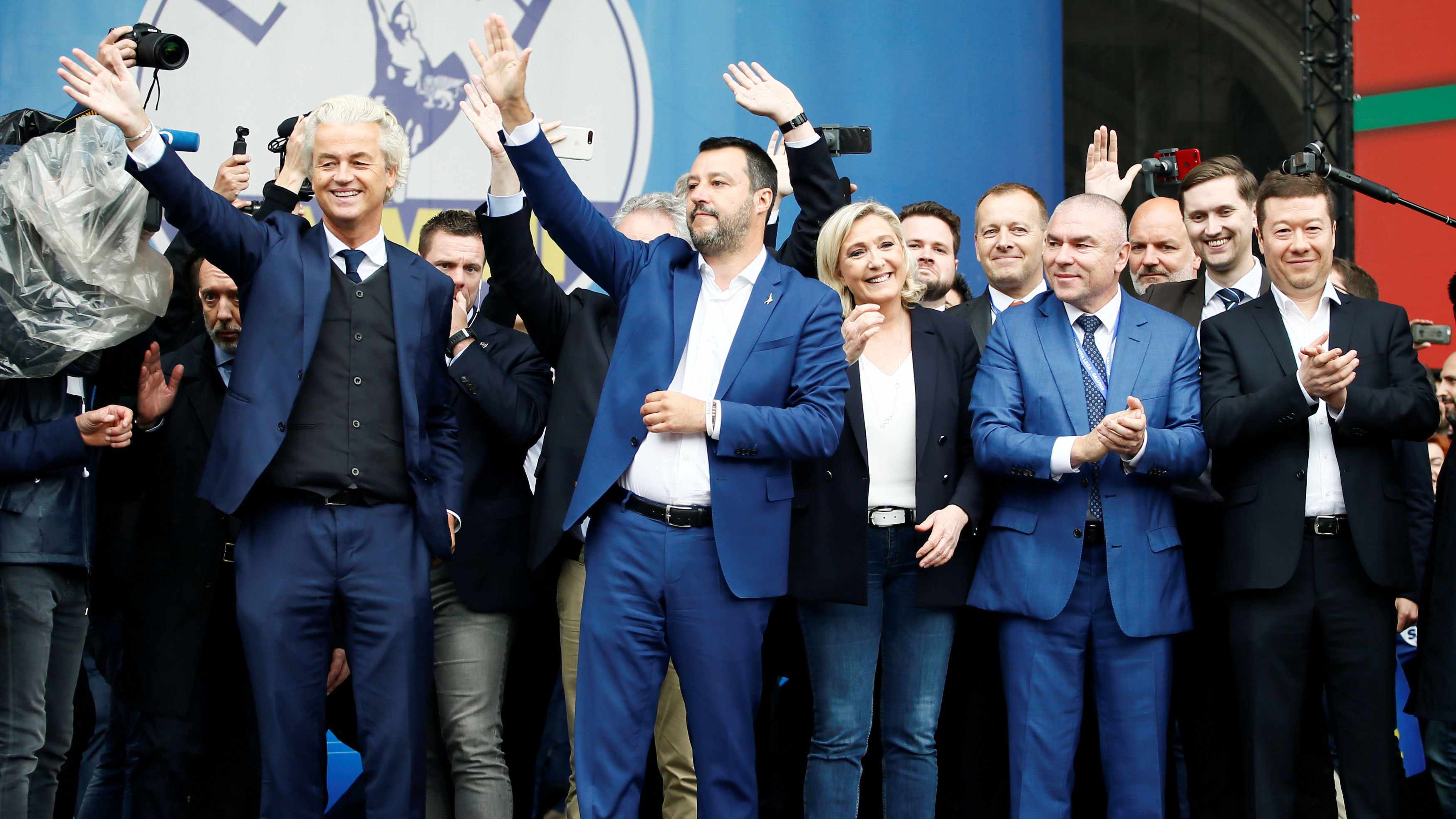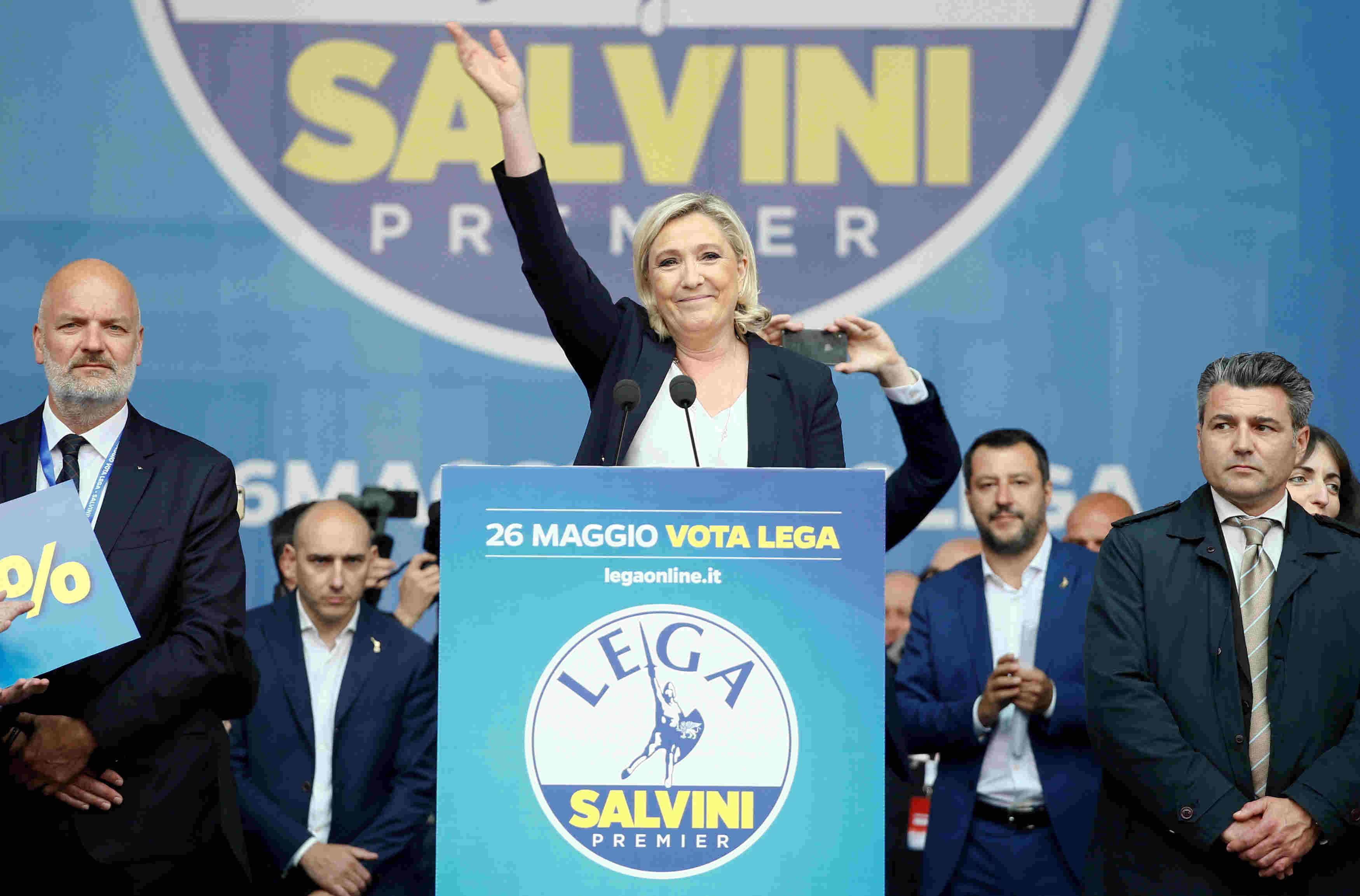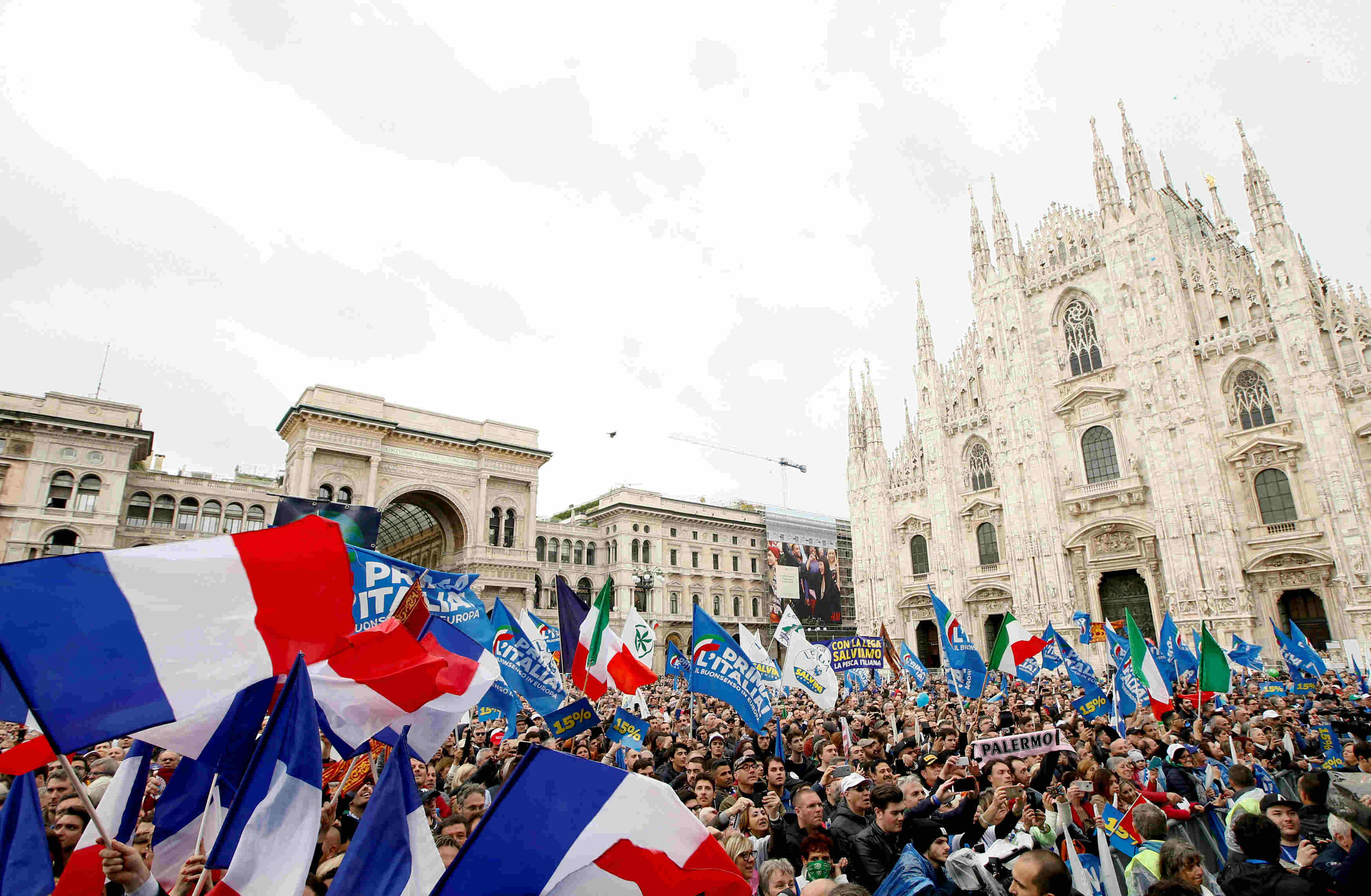
Europe
16:11, 20-May-2019
What's behind the far-right surge in European countries?
By Timothy Ulrich and Zhang Jing
03:30

While many are hoping the protests will stem the tide of nationalism, a rally held by far-right figures from across Europe took place in the Italian city of Milan over the weekend.
Far-right extremism in Europe has ebbed and flowed over the years, but it's never been such a prevalent and united force until now.
Although nationalist groups historically have always had a presence, the recent rise of these far-right groups was a reaction to the surge in migrants from some Arab nations in 2015.
Taking advantage of the lingering effects of the 2008 financial crisis, candidates started popping up across Europe, honing in on the migrant issue. It gave those affected by the economic downturn someone to blame and someone to fear. The real threat of terrorism became associated with migration.
Many, like rising French far-right politician Marine Le Pen, used this connection to mobilize support. She posed a major challenge against French President Emmanuel Macron during general elections in 2017, showing how much this message resonated with voters.

Marine Le Pen, president of the French National Rally party, addresses a major rally of European nationalist and far-right parties ahead of EU parliamentary elections in Milan, Italy, May 18, 2019. /Reuters Photo
Marine Le Pen, president of the French National Rally party, addresses a major rally of European nationalist and far-right parties ahead of EU parliamentary elections in Milan, Italy, May 18, 2019. /Reuters Photo
"I intend to immediately expel all flagged as extremists in connection with jihadism, because there is no reason that we keep people on our territory who represent a danger for the security of the French citizens," Le Pen pledged during her 2017 presidential bid.
Although she was defeated in the election, her presence in French and European politics has endured. Le Pen is one of many nationalists spreading a similar message in Europe's discourse. Over the weekend, she was part of a European nationalist rally in Milan led by Italy's Deputy Prime Minister and leader of the far-right party the League, Matteo Salvini.
"Who betrayed Europe, who betrayed one of the most beautiful dreams imagined by the founding fathers? The Europe of peoples and nations that De Gasperi, De Gaulle, Margaret Thatcher were talking about. The elites and the almighty have occupied this Europe in the name of finance, multinationals, the God of Money and uncontrolled immigration, the Merkels, the Macrons, the Soros, the Juncker," Salvini said at the rally.
Figures like Salvini and Le Pen have been conflating the migration issue with sovereignty. They believe their countries are having migrants forced upon them by the European Union, injecting the issue of Eurosceptic populism. These figures have also been united in their efforts. Le Pen, Salvini, and far-right Hungarian Prime Minister Viktor Orban are just a few creating an echo chamber for these policies.
"The program of legal migration is in reality the cover name of a European population exchange program, and this is what we have to face at the election," Orban said while speaking at a rally ahead of EU parliamentary elections.

People attend a major rally of European nationalist and far-right parties ahead of EU parliamentary elections in Milan, Italy, May 18, 2019. /Reuters Photo
People attend a major rally of European nationalist and far-right parties ahead of EU parliamentary elections in Milan, Italy, May 18, 2019. /Reuters Photo
Orban has been put up on a pedestal by many nationalists for his strict anti-immigration policies. He's been outspoken against what he and many on the far-right call the Great Replacement Theory – the idea that white Europeans will soon be replaced by migrant out-groups like Muslims. This idea has become widespread in discourse. And those who admire Orban, like Heinz-Christian Strache, who recently resigned as Austria's vice chancellor, were propelled into office by this ideology. Strache spearheaded the Freedom Party, a far-right party with ties to neo-Nazi groups.
"Kurz says that average immigrants are more intelligent, and more educated than average Austrians. Kurz should not consider himself an example of Austrian population, that is a mistake. He also said, as a party leader, that Islam is part of Austria. No, Islam is not a part of Austria, and we don't want any Islamization of our homeland," Strache said during a debate with Austrian Chancellor Kurz Sebastian.
Strache has gone so far as to say Austria should ban what he calls "fascistic Islam." He resigned as vice chancellor over the weekend after a video surfaced in German media of him threatening to bring down Austria's right-wing coalition government. The scandal toppled the Austrian government after Chancellor Sebastian Kurz called for snap elections in response. It also eclipsed the far-right rally in Milan, casting a long shadow over the movement.
(Cover: (L-R) Leader of the Dutch Freedom Party (PVV) Geert Wilders, Italian Deputy Prime Minister and Interior Minister Matteo Salvini, president of the French National Rally party Marine Le Pen, leader of Bulgarian Volya (Will) party Veselin Mareshki, and leader of the Czech Freedom and Direct Democracy party (SPD) Tomio Okamura stand on stage at a rally of European nationalists ahead of European elections in Milan, Italy, May 18, 2019. /Reuters Photo)

SITEMAP
Copyright © 2018 CGTN. Beijing ICP prepared NO.16065310-3
Copyright © 2018 CGTN. Beijing ICP prepared NO.16065310-3